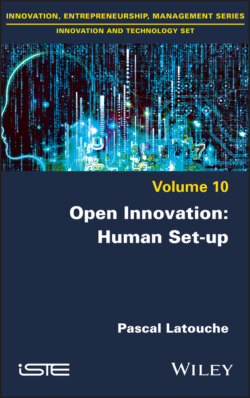Читать книгу Open Innovation - Pascal Latouche - Страница 14
I.6. The three parts
ОглавлениеTo introduce you to this world of corporate open innovation, and what the players have to do to make it work, I have structured this book in three parts.
The first part honors the protagonist that I consider the first solution: the entrepreneur. If there was no entrepreneur, there would be no corporate open innovation. The entrepreneurial journey will be revealed to you. There you will discover women and men, like you and me. Women and men that events have led to a shift towards entrepreneurship. But is it events that make us change our ways? Is it not rather our way of reacting and this little flame that each of us carries within us that acts? I’ll let you make up your own mind. In any case, for me, starting out from these journeys is first and foremost a way of sharing a deep conviction: entrepreneurship is first and foremost a life project and an experience that should allow you to earn a living.
It requires a certain way of thinking. This is called the mindset. This is the subject of the second part of the book. It will be a question for me of drawing up for you, based on a concept known from literature (digest), the portrait of the entrepreneur. But not only that! Indeed, we will also talk about the portrait of a classic employee within a large organization. Are entrepreneurs and employees of large organizations alike? Besides, when these two protagonists want to work together, is it simple or complicated? What are the obstacles in front of them? And besides, entrepreneurs and employees of large organizations both have their own environments. How can these environments interact? The questions that this second part seeks to answer are numerous, as you can see.
I could add one more: what is the role of the corporate support structure for start-ups? Well, that simple question took me a whole section to deal with. This is the subject of the third part of the book. Who are these people who work in the corporate support structures of start-ups? What do they actually do and why do they have to act in a certain way if they want to succeed? I might as well tell you that I’m going to take the time to explain all this to you. It is not for me to tell you “that’s the way it is and that’s that”. Everyone has their own experience. Mine, I just want to share it with you by starting from the reality of the field and by enlightening it with literary concepts (digestible I remind you). It’s up to you to judge whether this advances the debate on the relationship between start-ups and large groups. For my part, I tend to consider that debates lead all the more to progress when we want to connect with the reality of these same things.
At the end of these three parts, I think you will have a slightly more precise idea of the experiences of entrepreneurs, the experiences of employees of large organizations and the experiences of those who are seeking to marry these two worlds. Not easy, but solvable, if we take into account one fact: the human! It is an obvious “given” … and yet when you take the time to read articles on the relationship between start-ups and large groups, you are surprised to realize that you will probably hear more about innovative solutions, investments, technological integrations and finally very little about these humans. In my opinion, they are the ones who do or don’t do things, so they are the ones I’m interested in….
My name is Pascal Latouche and as I write these words, I have a dual mission within a large French international group. On the one hand, I manage the group’s start-up corporate accelerator in France, and on the other hand, I am also in charge of coordinating the international network of the group’s start-up corporate accelerators, spread over four continents. I am a professional in open innovation ecosystems, marketing and communication, strategic management and business development. I am a graduate of Paris 1, Panthéon La Sorbonne, and have a Doctorate in Management Sciences from Paris-Saclay. It’s factual in the present tense (as I write these words). Tomorrow will be another day, because right now it’s just an illusion….
